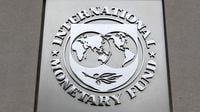The International Monetary Fund (IMF) approved a $1 billion disbursement to Pakistan on May 9, 2025, a decision that comes amidst ongoing tensions between Pakistan and India. The approval follows a previous agreement in which Pakistan was granted a $7 billion bailout program, of which this latest tranche marks the second disbursement.
According to a statement from Pakistan's Prime Minister Office (PMO), Prime Minister Muhammad Shehbaz Sharif expressed satisfaction over the approval, highlighting that the country’s economic situation is "improving" and is "moving towards development." This sentiment, however, is met with skepticism from neighboring India, which has raised serious concerns regarding Pakistan's financial dealings.
India's opposition to further IMF loans to Pakistan stems from allegations of the latter's support for cross-border terrorism. Following a recent terrorist attack in Kashmir's Pahalgam on April 22, which resulted in the deaths of 26 tourists, India intensified its scrutiny of Pakistan's financial activities. New Delhi formally requested the IMF to review its loans to Pakistan, arguing that the funds could potentially be misused to finance state-sponsored terrorism.
On the same day the IMF approved the disbursement, India abstained from voting during the board meeting that reviewed the Extended Fund Facility (EFF) lending program and considered a fresh Resilience and Sustainability Facility (RSF) lending program for Pakistan. The EFF program includes the $1 billion disbursement, while the RSF program could provide an additional $1.3 billion.
In a statement issued by India's finance ministry, the government emphasized that rewarding Pakistan for its alleged sponsorship of terrorism sends a dangerous message to the global community. The ministry's statement read, "Such actions expose funding agencies and donors to reputational risks, and make a mockery of global values."
India's concerns regarding the efficacy of IMF programs for Pakistan are not unfounded. The country has a poor track record with IMF loans, having received disbursements in 28 out of the last 35 years. In fact, since 2019, Pakistan has entered into four separate IMF programs, raising questions about the effectiveness of these financial interventions.
The IMF's decision to approve the latest funding comes despite India's objections, which were echoed by several other member countries during the meeting. India's representative, World Bank executive director Parameswaran Iyer, voiced concerns that the IMF's procedural and technical formalities may overlook the moral implications of lending to a country with Pakistan's history.
Furthermore, India's statement highlighted the ongoing influence of the military in Pakistan's economic affairs. Despite a civilian government currently in power, the military's significant role in domestic politics and its deep entrenchment in the economy raises alarms about potential policy reversals and the effective use of IMF funds.
In a 2021 UN report, military-linked businesses were described as the "largest conglomerate in Pakistan," illustrating the challenges that the IMF faces in ensuring that its funds are used appropriately. India's finance ministry pointed out that the continued sponsorship of cross-border terrorism by Pakistan undermines the integrity of global financial institutions.
As the IMF navigates these complex dynamics, the implications of its funding decisions extend beyond mere financial assistance. The global community is closely watching how these funds are utilized and whether they contribute to stability or exacerbate existing tensions in the region.
In light of the recent developments, the IMF's approval of the $1 billion disbursement to Pakistan is a significant moment, but it raises critical questions about accountability and the international community's response to state-sponsored terrorism. As Pakistan continues to grapple with its economic challenges, the scrutiny from India and other nations underscores the delicate balance that international financial institutions must maintain in fostering development while ensuring that funds are not misused.
The situation remains fluid, with the potential for further developments as both countries navigate their complex relationship. The IMF's role in this context is pivotal, as it seeks to address the economic needs of Pakistan while also considering the broader implications of its lending practices.




